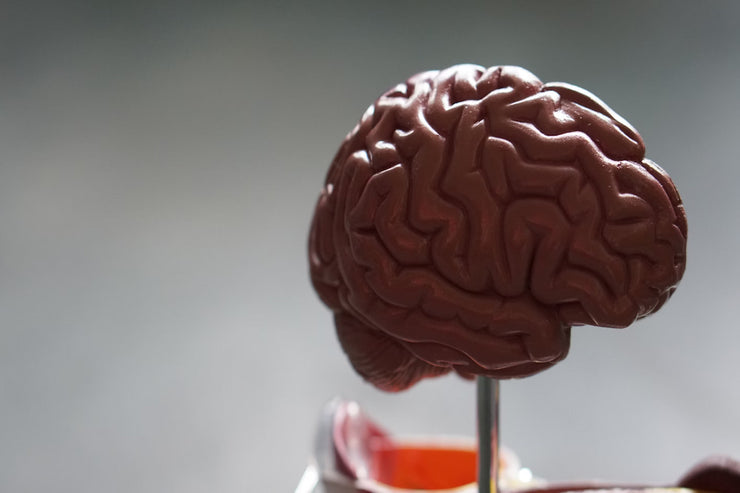CBD Oil for ADHD: Does it Work?


The rash of social media accounts dedicated to ADHD symptoms, and individuals decrying their diagnosis is not a trend, as many believe.
It’s a sudden jump in awareness surrounding what we are now learning is a pretty common ‘behavioural disorder’ – although many experts would argue that this is not necessarily a disorder, just a different way of being.
Until recently ADHD (attention deficit hyperactivity disorder) wasn’t all that talked about or understood, particularly in women. But new data has revealed that an enormous 2% to 6% of the global adult population (and 5% to 10% of school-aged children) are affected by this condition.
Working theories suggest ADHD may occur as the result of a variety of factors including lower than normal levels of dopamine, and reduced blood flow to the hippocampus (the region of the brain associated with memory, decision making and emotion), and many ADHD treatments (such as Adderall and Ritalin) are prescribed based on these.
You may have heard through the grapevine that people are also taking CBD oil for ADHD – a novel food supplement derived from the cannabis plant (the whole flower of which, contains therapeutic amounts of THC can be prescribed in the UK for ADHD symptoms).
But can CBD products really treat ADHD? Is CBD oil safe for children with ADHD? And are there any side effects?
It's important to note that any CBD oil you can buy from a shop is not considered to be a medicine. Most prescribed CBD oil will contain some level of THC (the cannabinoid which, along with its therapeutic benefit, produces psychoactive effects).
However, studies have shown that the CBD molecule holds promise for treating a wide range of health conditions, including ADHD. So, let’s take a look at what the science is saying…
So, Does CBD Work for ADHD?
Sativex is one of only two cannabinoid-based medications available on the NHS in the UK. It’s an oral spray containing a 1:1 ratio of CBD to THC, prescribed for a variety of conditions.
In 2017, a clinical trial was conducted trialling Sativex for the treatment of ADHD, which yielded exciting results: all 30 adults with ADHD given Sativex showed improvements in hyperactivity-impulsivity, attention span, and emotional control, while the placebo group did not.
In another study, published in 2018 in the Frontiers in Pharmacology, researchers administered CBD to 53 individuals with ADHD (aged between 4 and 22) over the course of 66 days, to find out how CBD impacted their ADHD symptoms, if at all.
An impressive 68% said that they noticed an improvement in self-injury, rage and a decrease in hyperactivity, while anxiety was noted to drop by 47%. However, this was less positive in child participants, 24% of whom actually said their anxiety increased overall. Ultimately, CBD could help relieve anxiety symptoms too.
As mentioned above, there are thought to be numerous contributing factors to ADHD such as lower levels of dopamine, decreased blood flow to the hippocampus and potentially an imbalance or inflammation in the gut-brain axis.
There are now several studies looking at CBD and other cannabinoids that explore these specific areas, and they do provide evidence that CBD might make a difference.
Can CBD Improve Cognitive Function in Adults with ADHD?
It’s believed that many of the cognitive issues associated with attention deficit hyperactivity disorder are related to reduced blood flow to the hippocampus. Incredibly, studies have shown that CBD can have a profound effect on this.
Ground-breaking research performed by UCL researchers in 2020 found that a 600mg dose of cannabidiol can significantly increase blood flow to the hippocampus (to reiterate, that’s the region of the brain associated with memory, decision-making and emotion) without changing other areas of the brain.
In another study, a lower dose of 300mg was said to help ‘normalise social deficits and cognitive impairments, protect against hippocampal cell death, and improve cognition. ’These are of course much higher doses than the Food Standards Agency recommends, but it is an extremely exciting find.
Not just in regards to ADHD, but in research exploring new treatments for Alzheimer’s disease and PTSD, both of which are also characterised by this deficit.
Further research (published in Frontiers in Pharmacology), found that through this same mechanism, CBD may ‘dampen hyperactive circuitries in the hippocampus and other parts of the brain’, suggesting a potential means to reduce hyperactivity in people with ADHD.
Does CBD Increase Dopamine in People with ADHD?
Ritalin and Adderall are two pharmaceutical drugs commonly prescribed for the treatment of ADHD.
They work, in part, by stimulating an increase in the neurotransmitter dopamine, which is often deficient in people with ADHD (and people with Parkinson’s). While these medications work well for some, they do unfortunately come with a risk of potentially unpleasant side effects and many people claim they don’t ‘feel themselves’ when taking them.
Because of this, adults with ADHD who might ordinarily rely on these drugs are considering CBD oil as a natural alternative as, like Ritalin and Adderall, CBD does increase dopamine levels (but not as much).
The CBD molecule is known to partially activate dopamine receptors, which means it provides a little boost but not enough for there to be a risk of addiction. Whether this is enough to help with ADHD remains unknown.
Although plenty of adults with ADHD enjoy using CBD oil and feel it helps, it’s important to remember that this is not a medication and should only be taken as a food supplement to complement a healthy lifestyle.
Unless prescribed, CBD oil is not recommended for children. If you’re thinking about trying CBD oil, you can do so knowing that is free from harmful side effects and may help bring balance into your life. But if you’re struggling with ADHD, it’s always best to seek advice from a medical professional.
